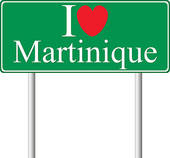 As I explained in a previous post, I decided to introduce the passé composé with my French 2 students in a different way this year. Rather than explaining the rules for choosing the correct helping verb and past participle, I gave them a series of questions and answers that they used to interview each other and provided input by introducing readings and comprehension questions that were written in passé composé. I had no idea how the students would react to this unit, but I was pleasantly surprised. Nearly all of the students were able to successfully discuss what they had done at school the previous day using comprehensible sentences. While some students made occasional errors in choosing the correct helping verb during their conversations, they were still able to express their meaning. I was somewhat surprised to find that the students were less accurate in their written work. More students totally omitted their helping verbs when writing than when speaking.
As I explained in a previous post, I decided to introduce the passé composé with my French 2 students in a different way this year. Rather than explaining the rules for choosing the correct helping verb and past participle, I gave them a series of questions and answers that they used to interview each other and provided input by introducing readings and comprehension questions that were written in passé composé. I had no idea how the students would react to this unit, but I was pleasantly surprised. Nearly all of the students were able to successfully discuss what they had done at school the previous day using comprehensible sentences. While some students made occasional errors in choosing the correct helping verb during their conversations, they were still able to express their meaning. I was somewhat surprised to find that the students were less accurate in their written work. More students totally omitted their helping verbs when writing than when speaking.
Now that the students have demonstrated their ability to communicate using memorized phrases, I thought that it was time to introduce a few rules so that they could begin creating sentences of their own. I struggled a little bit, however, in coming up with a cultural/content context for this next unit. I wanted a context that would provide them with lots of opportunities to narrate past events, without requiring them to include lots of description in the past. (While they are seeing lots of imperfect in the authentic resources, it’s not my intention that they produce this verb form at this time.) It seemed that discussing a vacation might meet these requirements and provide a way of introducing some important new vocabulary items. In order to provide an authentic cultural context for this unit (and to escape, at least virtually, winter in the Midwest) , I have chosen to use Martinique as the vacation destination that these students will learn about. Here’s how I introduced this unit:
Day 1: Students read an infographic about Martinique and complete an interpretive task. In addition, they begin work on a guided note-taking activity designed to introduce them to a few simple rules about forming the passé composé.
Day 2: Students completed an interpersonal activity (Guess Who game) to familiarize them with the vocabulary for activities that people do while on vacation in Martinique. After they played the game for about 20 minutes, I gave them a formative assessment in which I made 10 true/false statements about Nicolas (the first “identity” on the game paper). The students also finished the guided note-taking activity.
This is what I have planned for the rest of the unit.
Day 3: We will watch a short video about Martinique and the students will answer comprehension questions. They will then complete an interpersonal activity in which they describe what they did on vacation to a partner who will select the appropriate vacation pictures. Lastly they will complete a worksheet which requires them to write sentences about what various people did in Martinique.
Day 4: Students will watch another video and then complete a cooperative activity in which they work with a partner to put historical events in chronological order, based on information in each of their articles.
Day 5: Students will read an article about vacationing in Martinique and complete an interpretive task. This will count as the interpretive reading portion of their IPA.
Day 6 and 7: Students will use Ipads to research various places and activities in Martinique for their virtual trip to Martinique. They will then complete a journal of the activities they did each day of their trip.
Day 8 and 9: Students continue working on the rest of their IPA, which includes the following tasks: 1)Presentational Writing: Blog entry about trip to Martinique, 2)Interpersonal Speaking: Discuss trip to Martinique with partner, 3) Interpretive Listening: Video about Martinique.
Day 10 and 11: Students will present their trip to Martinique to the class using a Google Presentation of photographs from their trip.
Here are the resources I’ve prepared for the unit:
Student Resource packet: Martinique vocab & grammar , Student Activity Packet: martinique unit , Guess Who Game martinique_guesswho(rev.) Pair Activity Martinique pair act. Worksheet martinique ws, Manipulatives for history activity: history_manipulative, virtual trip packet: martinique project, IPA: Martinique IPA
